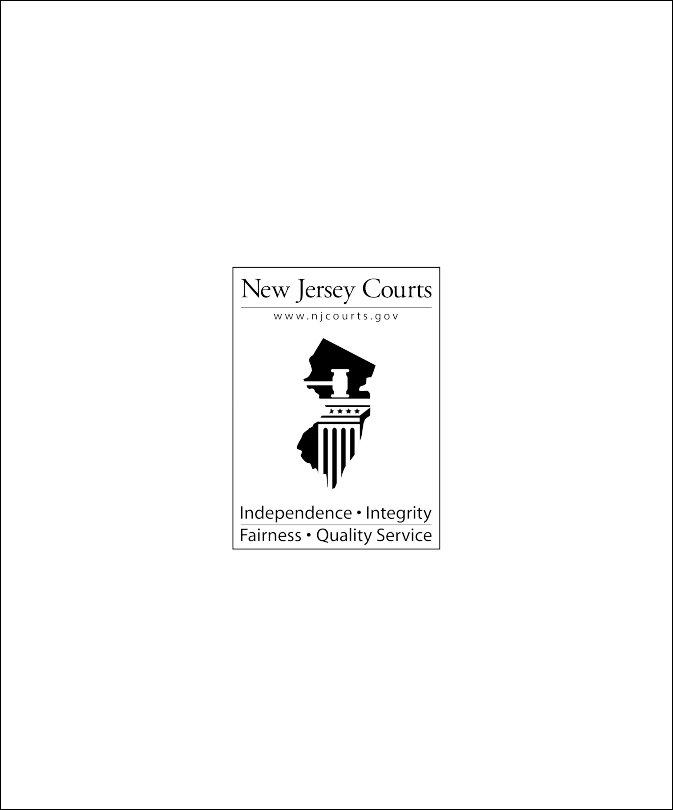Navigating the landscape of judicial judgment enforcement and collection in New Jersey can seem labyrinthine without proper guidance. At the heart of this process is the New Jersey Superior Court's detailed directive on how creditors can pursue the debts owed to them by judgment debtors, specifically within cases bearing a “J” or “DJ” docket number. This crucial insight does not extend to child support, bail, restitution, or specific family cases, nor does it automatically include judgments not docketed with the Superior Court Clerk. For those holding judgments within the specified categories, an array of legal tools and procedures beckons. From the issuance of an Information Subpoena to uncover the debtor's financial landscape to the implementation of wage executions, bank levies, or even the seizure of personal and real property, the court outlines several methods to facilitate the collection of outstanding monies. Furthermore, the document offers guidance on enforcing out-of-state judgments and concludes with steps to officially satisfy the judgment once paid. This comprehensive booklet, revised as of August 2020, and available through the Judiciary's website, serves as an indispensable resource for individuals and entities aiming to navigate the complexities of debt collection within the New Jersey court system.
| Question | Answer |
|---|---|
| Form Name | Nj Superior Forms Form |
| Form Length | 5 pages |
| Fillable? | No |
| Fillable fields | 0 |
| Avg. time to fill out | 1 min 15 sec |
| Other names | docketed, judiciarys, njcourts, ssi |

New Jersey Judiciary
How to Enforce and Collect a Judgment
Superior Court of New Jersey
Law Division, Civil Part

How to Enforce and Collect a Judgment
This booklet provides information on how to collect a judgment in a civil case having a “J” or “DJ” docket number. It does not apply to judgments for child support, bail or restitution, or certain family cases.
The information in this brochure also does not apply to judgments awarded in the Law Division, Special Civil Part, which have not been docketed with the Superior Court Clerk. The process for collecting judgments with “SC” or “DC” or “L” docket numbers is detailed in the brochure entitled, Collecting a Money Judgment, Law Division, Special Civil Part, which can be found on the Judiciary’s Web site njcourts.gov.
If you are owed money as a result of a judgment with a “J” or “DJ” docket number, you are a judgment creditor (creditor). The person who must pay is the judgment debtor (debtor). Judgments in New Jersey remain in effect for 20 years and may be renewed for an additional
20 years by filing a motion in the Superior Court, Law Division, Civil Part and/or in the Special Civil Part if the Special Civil Part case was assigned a DJ or J docket number.
Information on how to file a motion and forms are available on the Judiciary’s Web site.
A docketed judgment becomes a lien against all real property owned by the debtor in New Jersey. If the debtor is unwilling or unable to pay you the money owed, there are several ways the court can help you collect it. The court cannot guarantee, however, that you will be paid.
Getting Information Regarding the Judgment Debtor’s Assets and Income. Information Subpoena - If you do not know whether the debtor has a savings or checking account, what personal property the debtor owns or where the debtor works, you can use an Information Subpoena.
An Information Subpoena is a set of written questions that can help you obtain information about the debtor’s assets and income. An Information Subpoena form is on the Judiciary’s Web site, njcourts.gov. There are two separate information subpoena forms - one is used for judgment debtors who are individuals and one is for business entities.
Once you have received answers to the questions on the Information Subpoena, you can ask the court to allow you to attempt to collect the money owed you from certain assets or income belonging to the debtor, such as wages, automobiles, bank accounts and other personal property.
You cannot, however, collect your judgment from the debtor’s welfare benefits, Social Security, SSI, veterans’ benefits or unemployment benefits.
Court Order for Discovery - You can also bring a motion for discovery which, if granted, will allow you to ask the debtor questions about his or her assets and income in person and under oath. Information and sample forms on How to File a Motion in the Law Division, Civil Part, are available on the Judiciary’s Web site, njcourts.gov.
Ways to Collect on a Judgment
Once you know that the debtor has income or assets, there are several ways you can try to collect the money that is owed you:
•Wage Execution - If the debtor works in New Jersey and earns more than $217.50 per week, you can ask the court for an order directing the debtor’s employer to deduct a set amount from his or her paycheck until you are paid in full. This is called a wage execution or
Revised 08/2020, CN 11383 |
page 1 |

How to Enforce and Collect a Judgment
garnishment. To request a wage execution, you must send a Notice of Application for Wage Execution to the debtor and his/her employer by regular and certified mail. A sample Notice is posted on the Judiciary’s Web site. A copy of the application and a proof of service must be filed, along with a $50 fee, with the Civil Division Manager’s office in the county where the case was heard. Both the original docket number of the case and the “J” or “DJ” docket number must appear on your application.
If the debtor objects to the wage execution, before or after it is issued, the court will schedule a hearing. If there is no objection or if the judge disallows the objection, the court will issue an Order for Wage Execution. Once you receive the signed order, you must prepare a Writ of Wage Execution. The Writ of Wage Execution is a document that gives the sheriff the authority to collect the money owed to you from the debtor’s wages. A sample Writ of Wage Execution is on the Judiciary’s Web site.
You should then forward the writ of wage execution and the appropriate sheriff’s service fee to the sheriff of the county where the debtor’s employer is located.
You should contact the sheriff’s office in advance to determine the amount of their fee.
•Bank Levy - Another way to collect on your judgment is to have the sheriff get control of the debtor’s bank account(s). This is called a bank levy. To do this, you need a Writ of Execution, a sample of which can be found on the Judiciary’s Web site. You must complete the writ form and send it to the court. If the Judgment has a “J” docket number, you must send the writ to the Civil Division Manager in the county in which your case was originally filed. If the judgment has a “DJ” docket number, the writ is issued upon request by the Clerk of the Superior Court in Trenton. The court fee for a Writ of Execution is $50.
Once issued, you must send the writ with the applicable sheriff’s fee to the sheriff in the county in which the bank is located. Before sending the writ to the sheriff, you should contact the sheriff’s office in advance and inquire as to the applicable fee. Be sure to include the name of the bank, the address, and the last four digits of the account number when you send the writ to the sheriff.
The sheriff will notify the bank of the writ and the account will be frozen. You must then a file a Motion to Turn Over Funds with the court and serve a copy on the sheriff, the bank and the debtor. A motion packet with sample forms is available on the Judiciary’s Web site njcourts.gov. If the debtor does not object to the motion, the judge will sign the order. If the debtor objects, a hearing will be held.
Once the judge signs the order, you must send it to the sheriff in the county where the bank is located, to the bank and to the debtor. The sheriff can then go to the bank and get the money from the account.
•Execution on Other Assets - You also can look to other assets to satisfy the judgment. If you know what personal items the debtor possesses, such as office equipment or vehicles, you can apply to the court for an order to let the sheriff enter the debtor’s property. The sheriff can then seize those articles and try to sell them at a public sale. If you ask the sheriff to take the debtor’s vehicle, you must be able to show that the vehicle is registered in the debtor’s name. To do this, you must get a certified copy of the title and a certified lien search from the New Jersey Motor Vehicle Commission. The debtor may keep $1,000 worth
Revised 08/2020, CN 11383 |
page 2 |

How to Enforce and Collect a Judgment
of personal property. If the debtor does not have $1,000 in personal property, this method cannot be used to collect the money.
•Execution Against Real Estate - The final method to use to attempt to collect your money is to ask the court for permission to sell the debtor’s real estate. This is a complicated process, and you may want to consult an attorney to assist you. This is also an expensive process because it entails a costly title search, publication of the sale in the newspaper and payment of considerable Sheriff’s fees.
Uniform Enforcement of Foreign Judgment Act
New Jersey recognizes judgments entered in the courts of other states as valid and other states recognize New Jersey judgments. Accordingly, if the debtor moves to another state, you can retain an attorney in that state to enforce your judgment there. This will allow you to pursue collection of your judgment in that state. Similarly, if you have received a judgment against a debtor in another state, you can docket it with the Clerk of the Superior Court and attempt to execute on assets held by the debtor in this state.
The address for the Superior Court Clerk’s Office’s Judgment Unit is, P.O Box 971, Trenton, NJ 08625. A form for recording an
Satisfaction of the Judgment
Once your judgment has been paid or satisfied, you should send to the county where the judgment was originally entered, or to the Clerk of the Superior Court for cases with a J or DJ docket number or send the debtor directly - a Warrant to Satisfy Judgment. A sample form appears on the Judiciary’s Web site. The debtor or creditor can then file it with the along with the applicable fee of $50. The judgment and lien will be cancelled, and the case will be closed.
Revised 08/2020, CN 11383 |
page 3 |

Stuart Rabner
Chief Justice
Glenn A. Grant, J.A.D.
Acting Administrative Director of the Courts
Jennifer M. Perez
Director, Office of Trial Court Services
Taironda E. Phoenix
Assistant Director, Civil Practice
(Updated 08/2020)